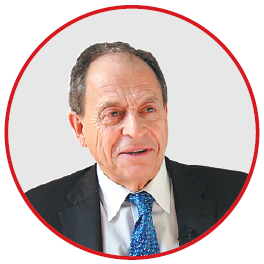
London, 1948
? Education:
1955-67: University College School, London
1968-72: University College London, Bachelor of Law
Career:
1963: Starts working part-time at London Export Corp
1972: Formally joins London Export Corp
1975: Appointed group managing director at London Export Corp
1993: Becomes chairman of the 48 Group Club
Favorite book:
China at the Crossroads by Peter Nolan
'Icebreaker' who warmed Sino-British trading links

Stephen Perry, who traveled to China with his father in 1972, has since become a regular visitor to the country's flagship Canton Fair in Guangzhou, capital of Guangdong province. This has enabled him to see up close the dramatic changes that have taken place in China, especially since 1978, when the reform and opening-up policy began to transform the nation from a planned to a market economy and unleashed its entrepreneurial spirit.
Recalling his experiences of traveling to China in the '70s, Perry said his impression was colored by memories of massive poverty and the hard life of rural residents. Yet despite the financial difficulties, he saw that the Chinese people were already thinking about the future.
They were "spending a lot of time talking, philosophically, on what was the right way to go", he recalled. "I was very impressed."
Then, in 1978, he witnessed a massive transformation. "The first changes were the decentralization of China's agricultural sector, the breaking up of the commune, which gave people more freedom. Universities reopened, schools became important, and people started to debate issues."
China's reform focused on a shift from the previously State-dominated economy to encouraging private sector participation. Price controls and protectionist policies were removed or reduced, and as a consequence the private sector grew remarkably. The sector now contributes more than 60 percent of China's GDP growth and provides more than 80 percent of jobs.
Over the past 40 years, the country's GDP has grown at an average of about 9.5 percent a year.
Opening-up also brought regulatory changes that allowed foreign investment, and with that Chinese companies were encouraged to trade and invest abroad.
"There is still a long way to go but, my goodness, no country has advanced with that speed and with that dynamism," Perry said.
For him, China's economic transformation is not just about the numbers. Visiting the Canton Fair over the years, he has noticed a massive change in the foreign trader's experience.


